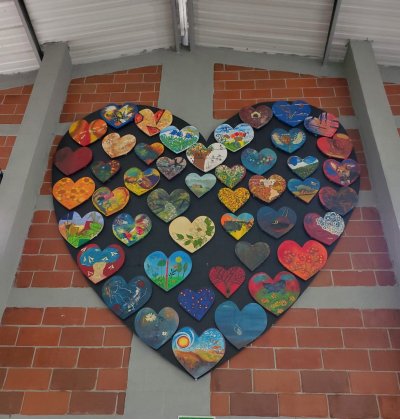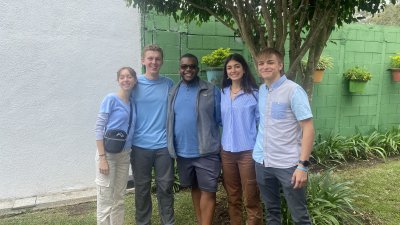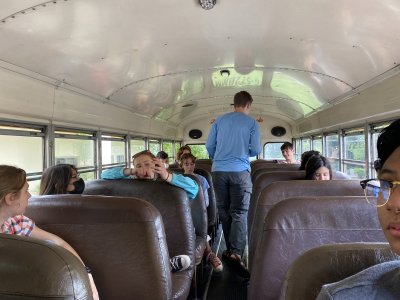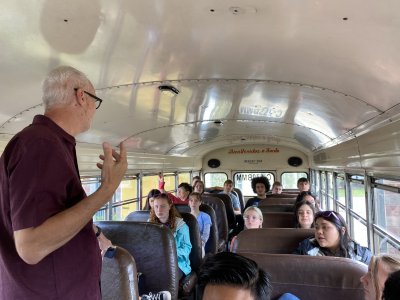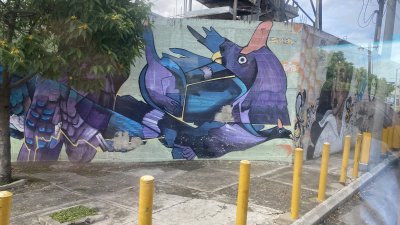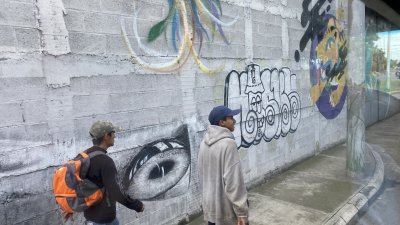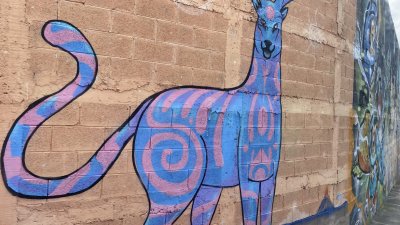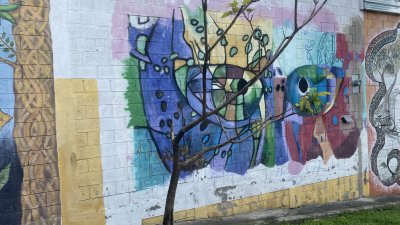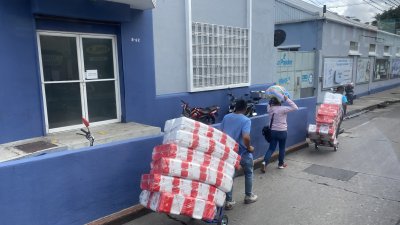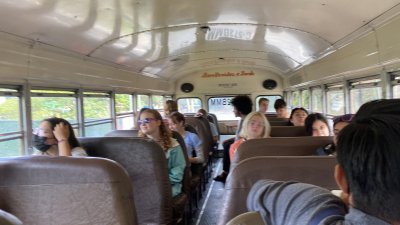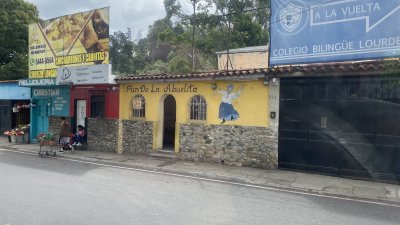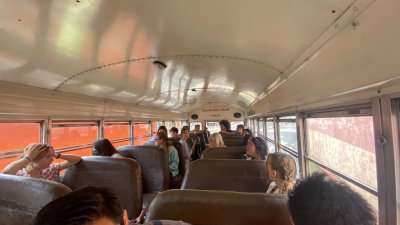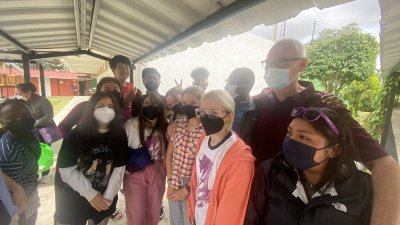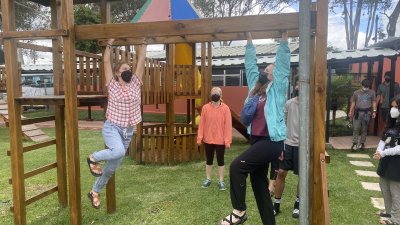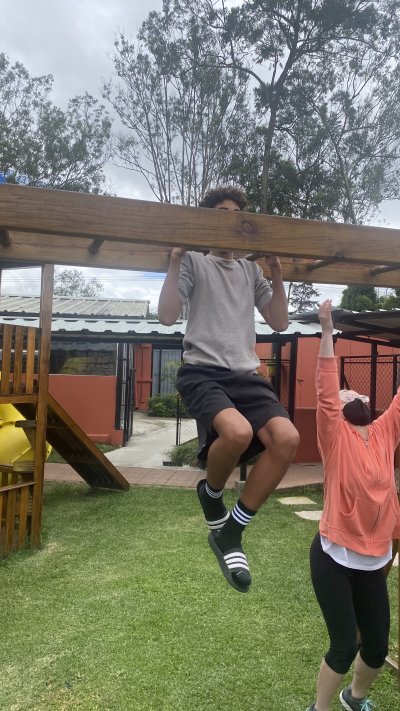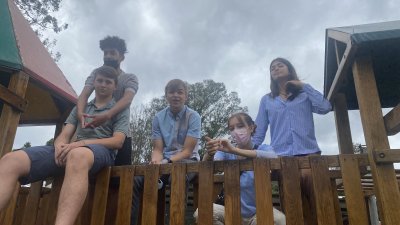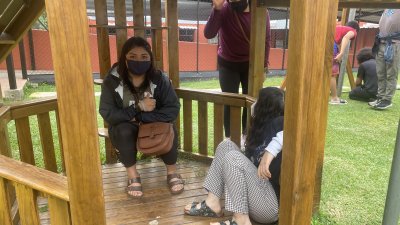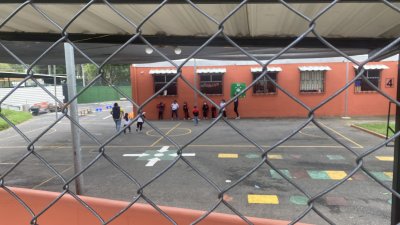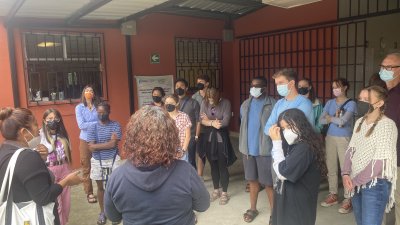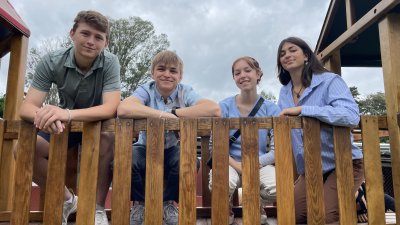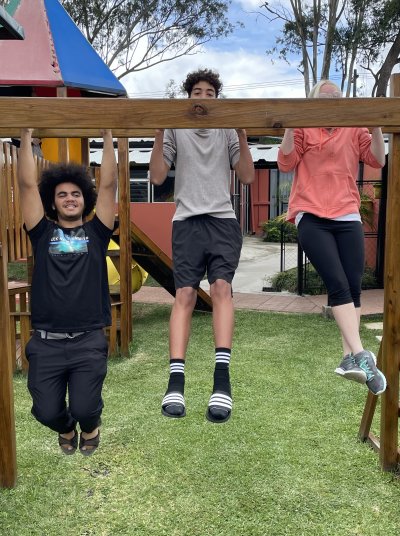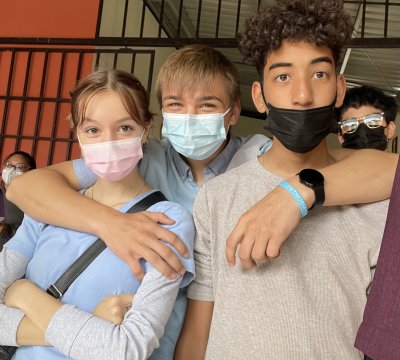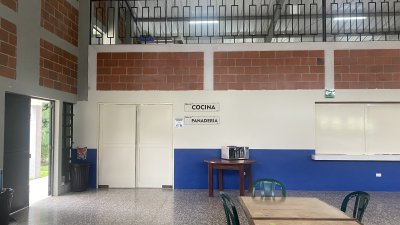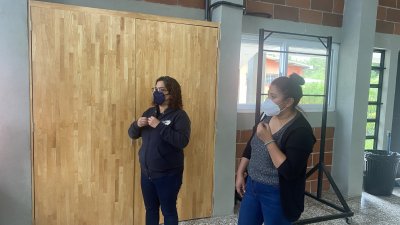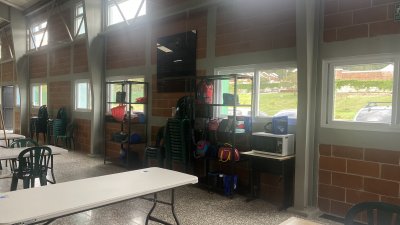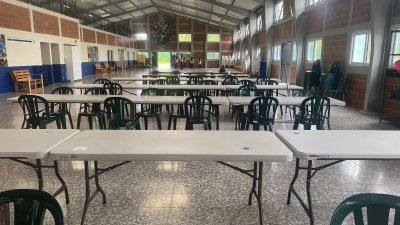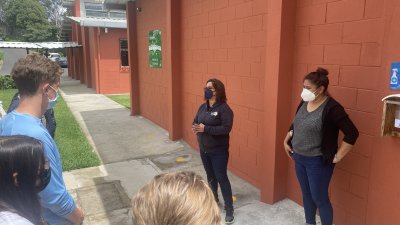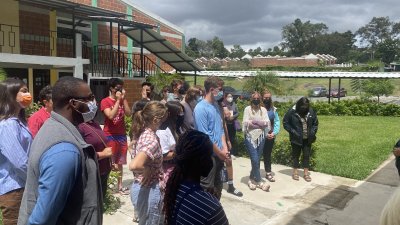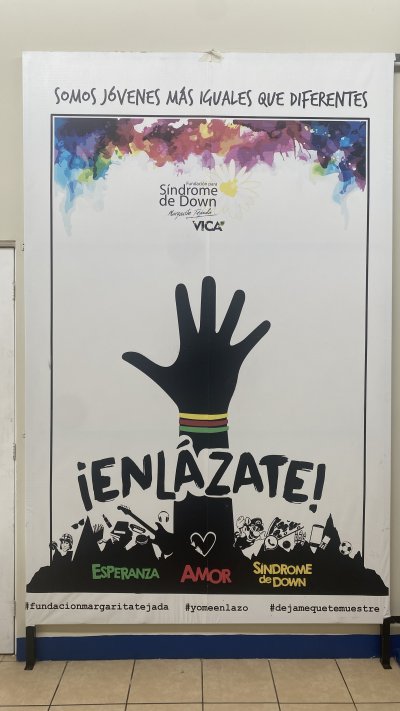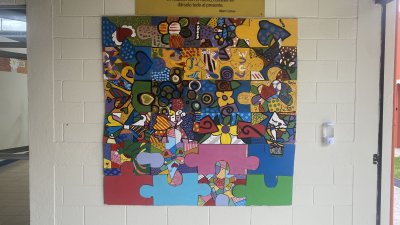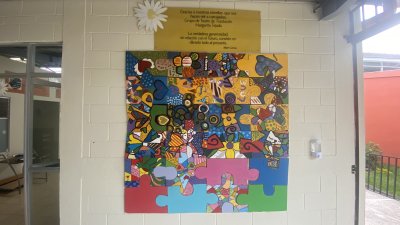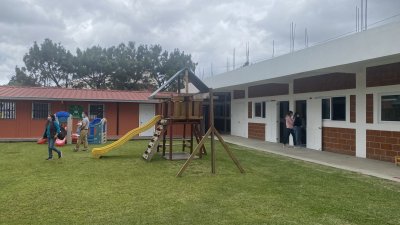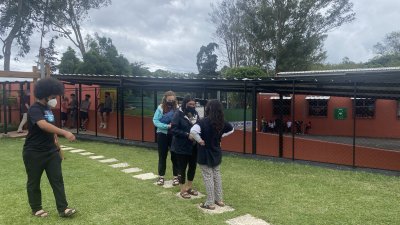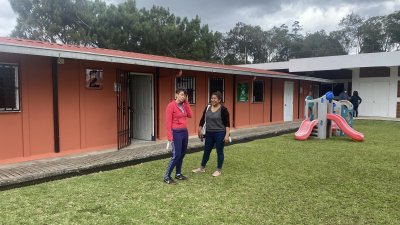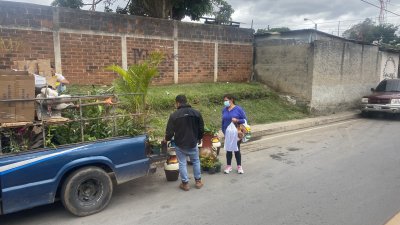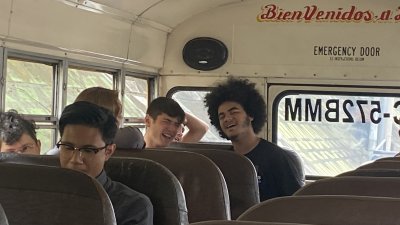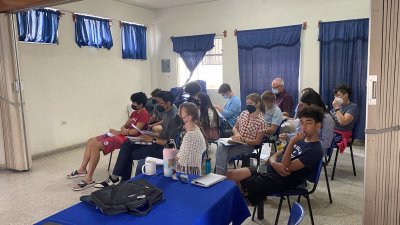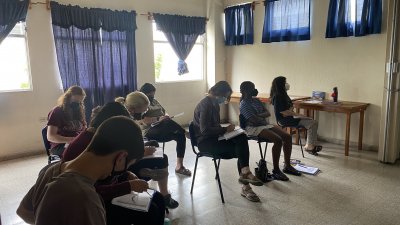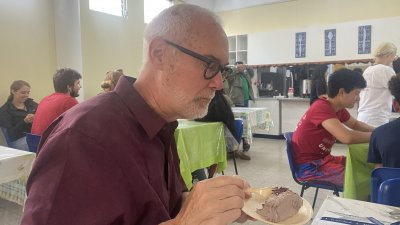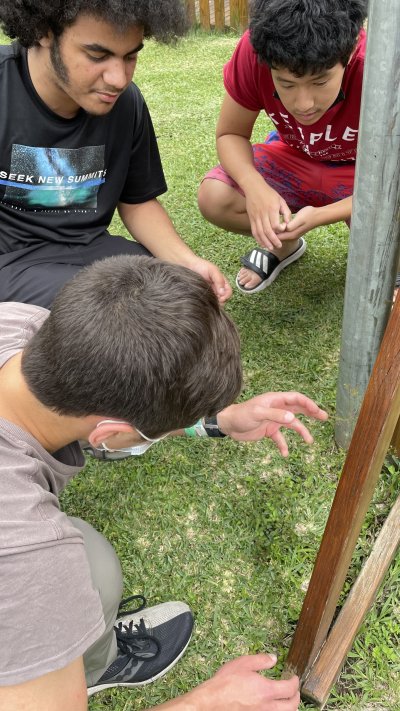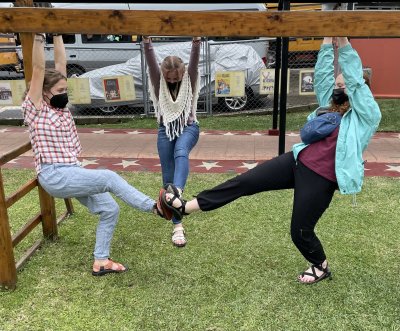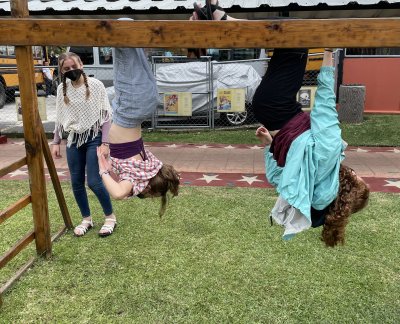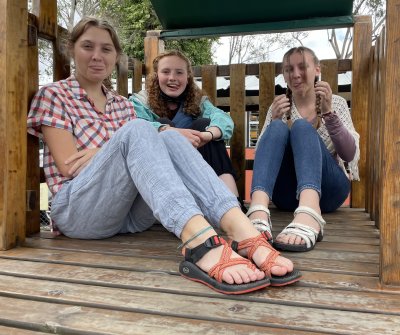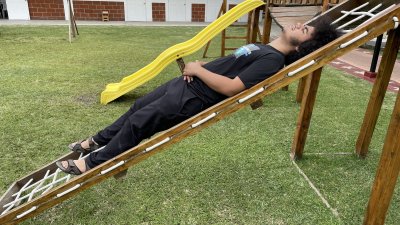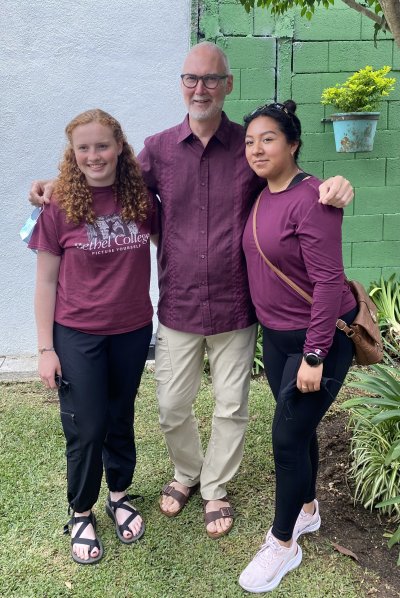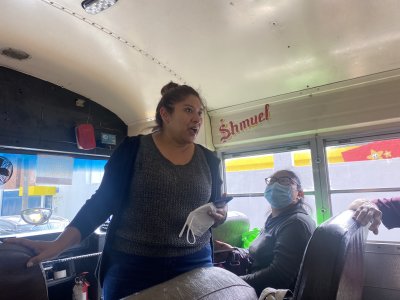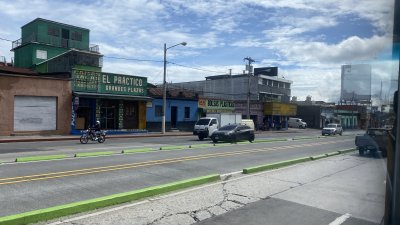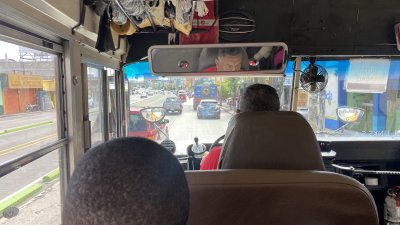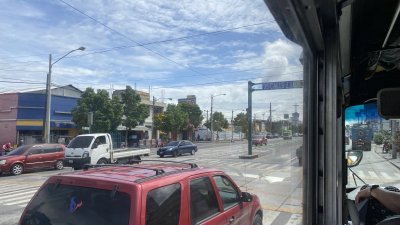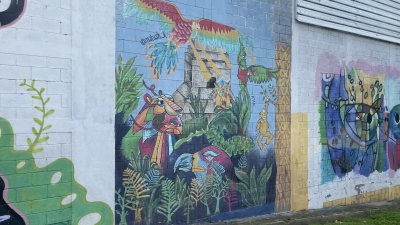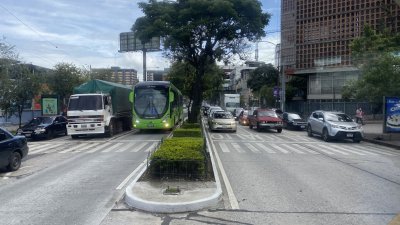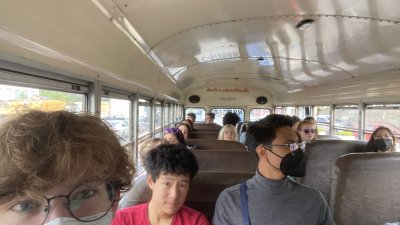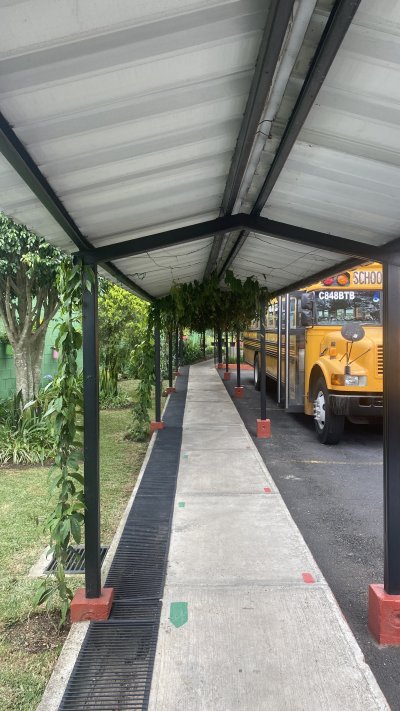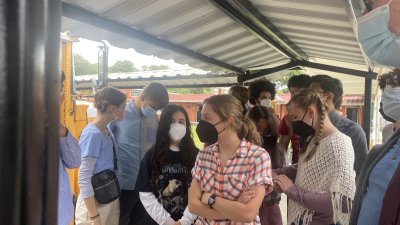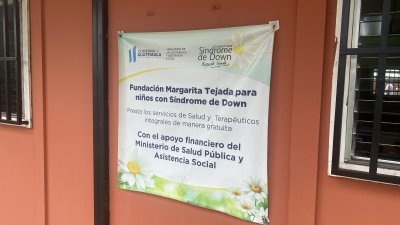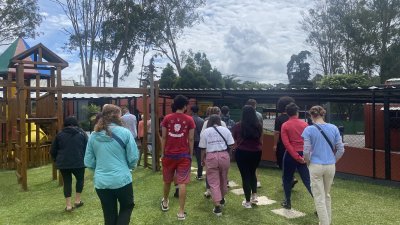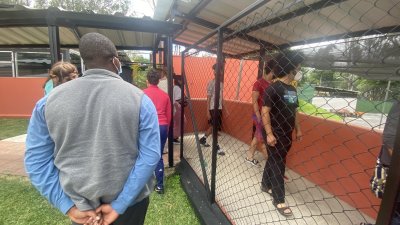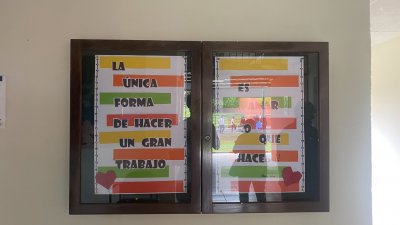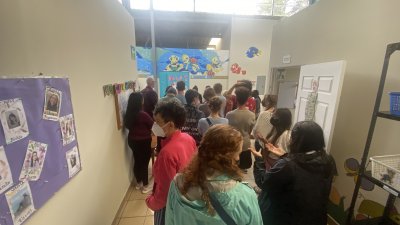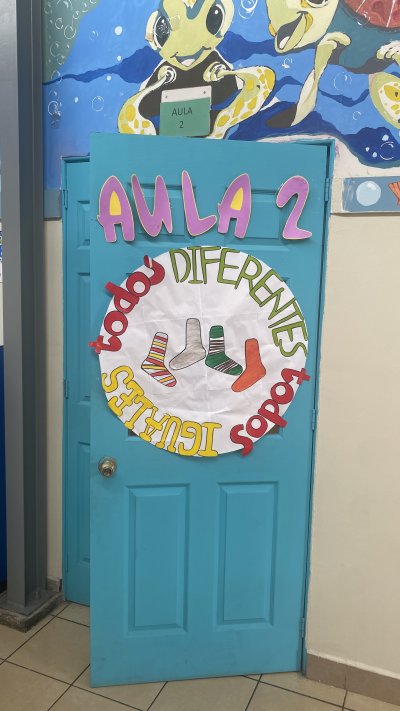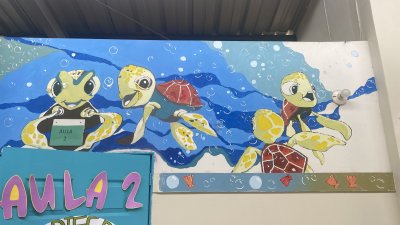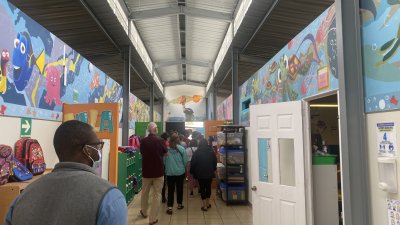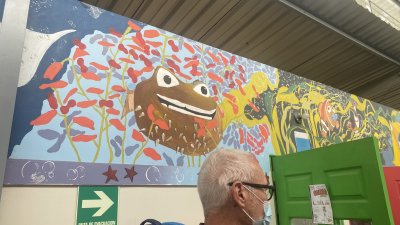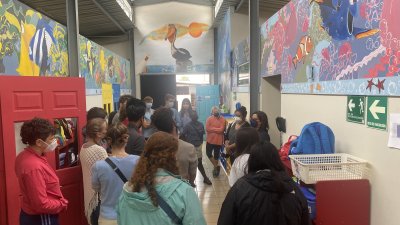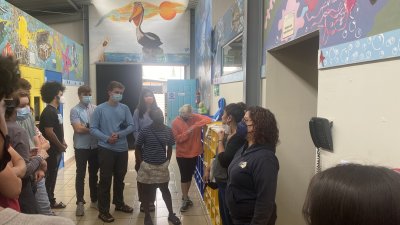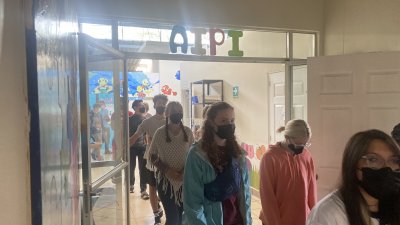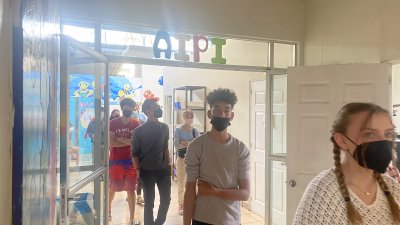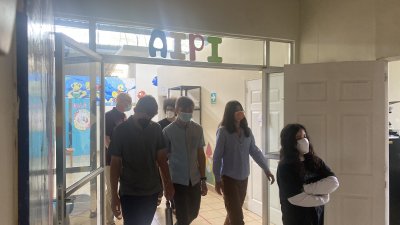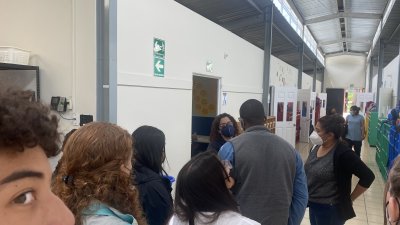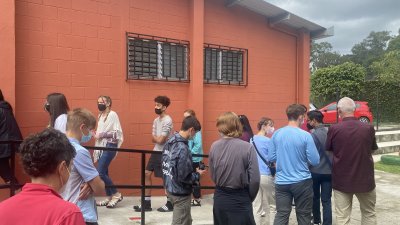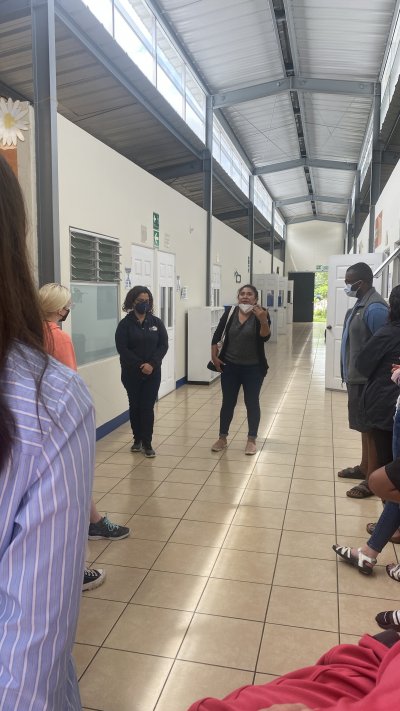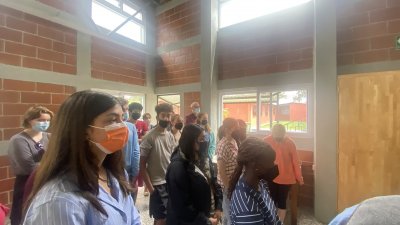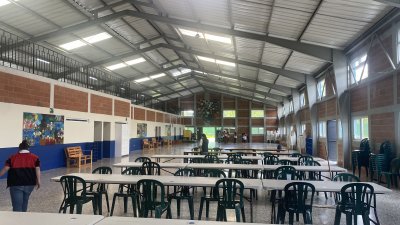Visiting The Margarita Tejada Foundation
The sounds of hymns “You are Holy” and “Santo Santo Santo” filled the top floor of SEMILLA this morning. The harmony, although sometimes a little pitchy, was carried heartily by each of our voices. Cathy led our centering prayer today with a line from Job 36:16 which says, “He is wooing you from the jaws of distress to a spacious place free from restriction, to the comfort of your table laden with choice food.” The verse spoke especially to our conversations previously about acting within liminal spaces. As our faith guides us, or in this case God, we’re called to these liminal spaces that we’ve witnessed during our time here.
Our conversation for worship also focused on the phrase, “Earth wears her green vigor” by Hildegard of Bingen. Each student was invited to share a time they saw God’s “green vigor in their lives.” There was a wide range of responses from seeing it through people, the sky, friends, singing, and new experiences. Each response was unique and more often than not, surprisingly simple. The way we perceive faith in the world around us is seemingly distinctive to each student here.
Immediately after worship and a quick (actually quite long) drive, we were given a tour of the Margarita Tejada Foundation, a school for children and adults with Down Syndrome that creates developmental opportunities for people with the syndrome. The non-profit foundation was established on January 14, 1998, by the efforts of ten mothers of children with Down Syndrome and is funded by donations and government grants. Although the school mainly focuses on individuals with Down Syndrome, there have also been efforts to create a much more inclusive environment, with a program that integrates a classroom of seven kids without Down Syndrome, along with three who have the syndrome. The program’s main goal, along with creating an inclusive learning environment, is to allow students to form relationships outside of ones that they would normally have.
Despite only having around an hour and a half of time with the foundation, we spent our time walking around the facility. Our students especially enjoyed hanging out on the playground at the entrance of the Margarita Tejada Foundation. After seeing the recreation area and kitchen, we were able to see students of the foundation in class and running about on campus, inspiring our energy as well.
Since its fruition, Margarita Tejada Foundation has helped well over 5,000 families throughout Guatemala. As of now, the non-profit organization currently helps around 565 families along the lines of education and health services. The families that the foundation serves generally have a low economic status. As individuals with Down Syndrome are marginalized within Guatemalan society and culture, Margarita Tejada has made substantial progress in eradicating social stigmas surrounding Down Syndrome. Through educating newfound parents and sharing their stories with the general public, their efforts have not gone without notice.
With our tour of the Margarita Tejada Foundation this morning, we switched our class sessions for the afternoon. Felix has returned once again to speak with our class regarding theology within Guatemala. Today’s initial session with Felix was quite provocative, particularly when he described the sociological reality that societal violence and religion are positively correlated, which prompted zesty conversations about forms of theology that might be problematic, whether those are in Guatemala or the U.S. Students were rather energized around discussing life-giving theological understandings and ones that might contribute to negative human flourishing. It’s a conversation we need to continue.
After our Mennonite Central Committee speaker came in yesterday, Graciela wrote in her journal (quoted with permission): “I think I want to take a gap year before college to do one of the MCC programs. I think that’s what I’m supposed to do, and I think it will start with the path that the rest of my life will take. I don’t know, but I feel like I have a purpose, and that gives me the motivation to live now, too. I want to be the best person I can be, and learn everything that’s possible to learn in anticipation of my life. I’ve never had this clarity before, and it gives me so much hope.”
Responding to our Puerta de Esperanza and Terminal Market tour Wednesday, Leah wrote in her journal (quoted with permission): “I have a sense of guilt coming up inside of me that I didn’t know about some of these conditions. These conditions are also in my own country. I know God wants me to do something but I don’t know what yet. My goal is that I help to educate others and more youth about this country and what things we were never taught. I texted my mom afterward and said, ‘I just had the best experience of my life today, one I will carry in my heart forever.’”
In responding to two of the Guatemalan documentaries we saw in recent days (“Finding Oscar” and “The Art of Political Murder”), James wrote (quoted with permission) that both were deeply moving and thought-provoking. “I was struck by how the lack of legal accountability resulted in these tragic circumstances and an inability to even have comprehensive justice. It reminded me of the January 6th committee and how people who pose a threat to safety continue to walk free because of a lack of legal accountability for the elites. It renewed my interest in law.”
Right before dinner this evening, we celebrated Guatemalan Fathers’ Day which occurs just a few days before the United States. The fathers that were present each received a gift of chocolates, and that includes our very own Keith Graber Miller. It’s very easy to say that all of us are grateful for Keith during this trip. For some in the group, as we saw during our group worship later in the evening, remembering their fathers is complex and painful, though we expressed gratitude for fathers who have been present and supportive.
Group worship was led by Daniel, Sarah, Dexter, and Samuel and incorporated themes of sharing and gratitude. As we spoke of what we had learned in this context and what we were particularly grateful for, topics were varied and immensely profound, with many of us around the circle in tears. Despite only knowing each other for nine days (can that be possible?), the group’s interactions and transparent, open sharing make it seem like they have been best friends for years. It’s incredibly moving to witness the intensity and growth we are seeing in Guatemala.
-Alexander Koscher
